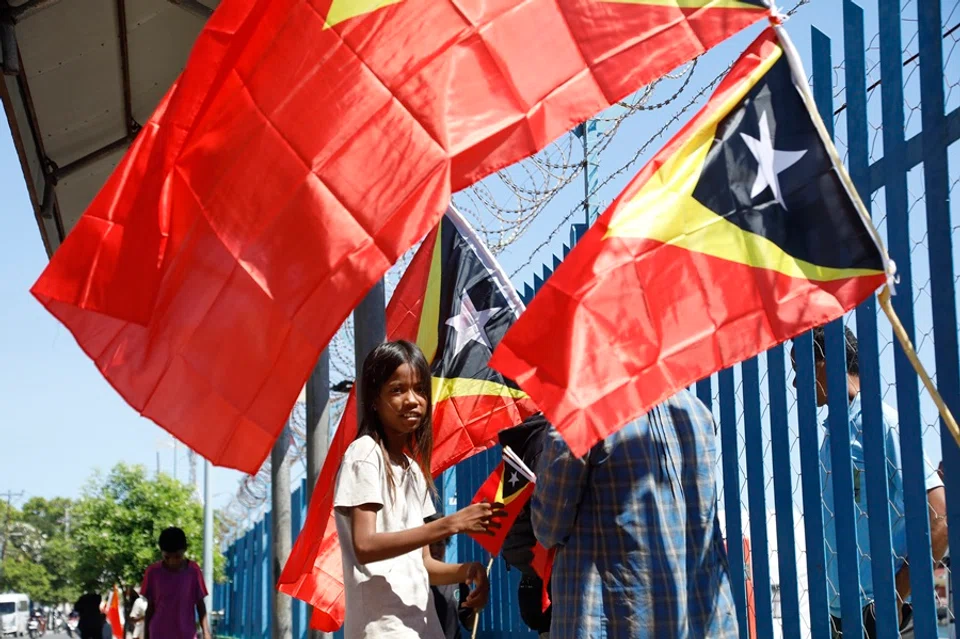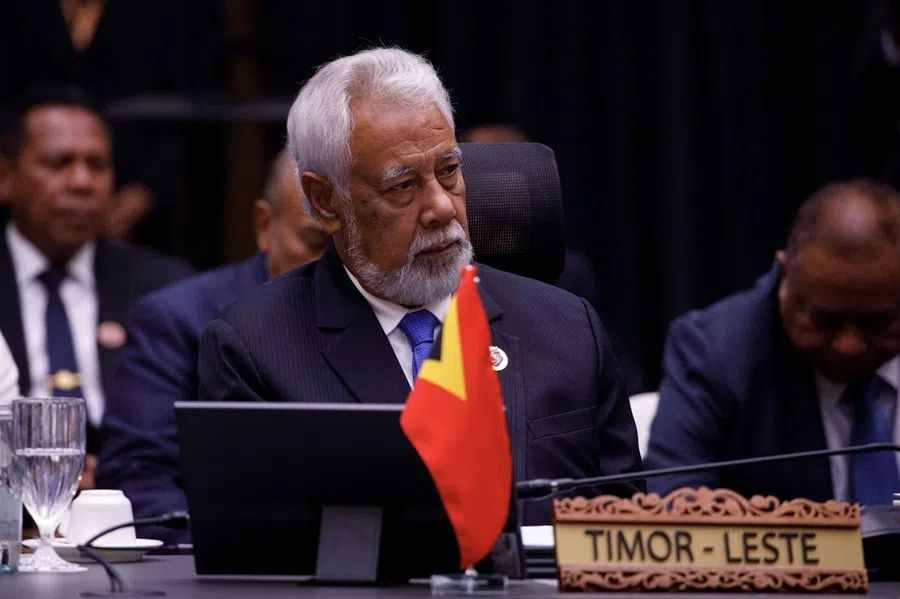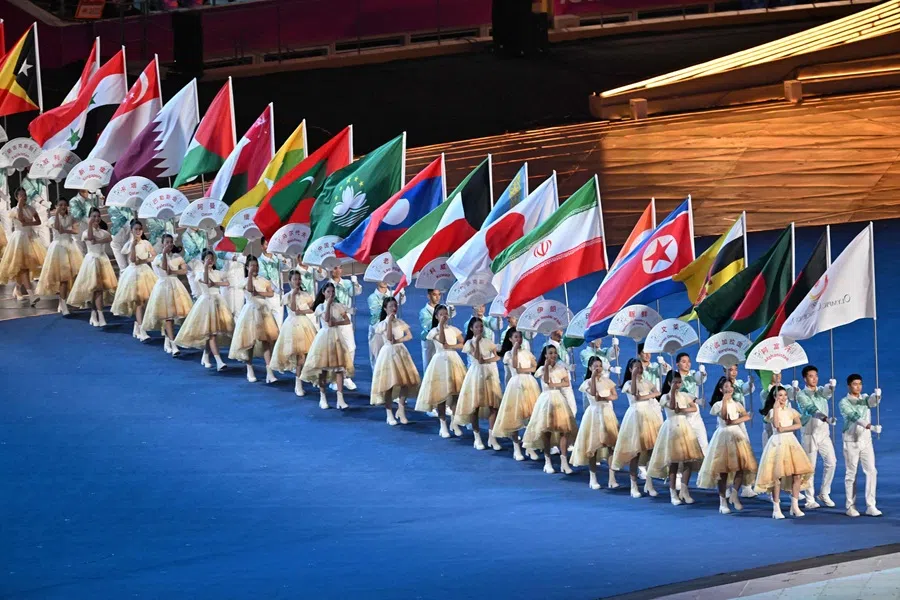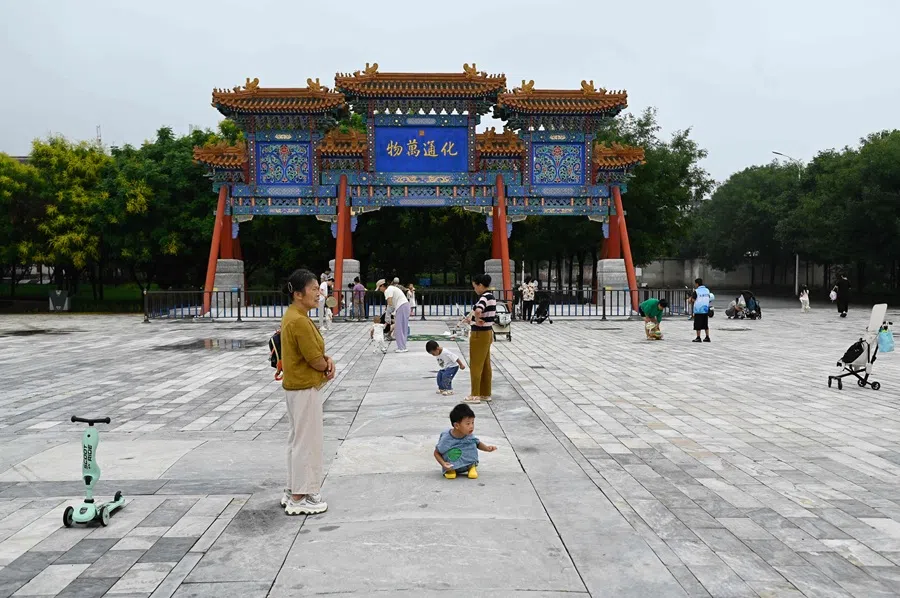Timor-Leste and China: Navigating the fine line of power and progress
China’s early aid sways Timor-Leste on Taiwan & global initiatives. Ahead of ASEAN entry, the bloc must empower Dili with more options for independent play. ISEAS researcher Lye Liang Fook shares his views.

Much anticipation awaits Timor-Leste’s admission into ASEAN as the 11th member in October 2025. Apart from the euphoria expected from ASEAN as well as the capital, Dili, China will be equally elated as it has played an active role in Timor-Leste’s socioeconomic development since its independence in 2002. Beijing would like Dili to remain friendly to China, and even supportive of Beijing’s global initiatives and key issues of concern after its admission.
Beijing: an early mover
The history of Timor-Leste (previously East Timor) underscores the unenviable fate of small political entities. It had to contend with centuries of Portuguese colonisation, decades of Indonesian occupation and years of Australian designs on its resources.
As a result, following its independence in 2002, Dili has emphasised non-alignment, multilateralism and diverse partnerships with other big powers, beyond its immediate neighbours Indonesia and Australia. In this connection, China is a key country in Timor-Leste’s efforts to pursue greater manoeuvring space and growth options.
China was the first country to recognise Timor-Leste’s independence on 20 May 2002 and the first country to sign an economic and technical cooperation agreement with Timor-Leste.
Cognisant of Dili’s preoccupations, Beijing moved early to lay the foundation of its ties with Timor-Leste. Before Timor-Leste’s independence, China rendered support and assistance to Dili’s independence process at the United Nations. Soon after Indonesia’s invasion of East Timor in December 1975, China supported UNGA Resolution 3485 (12 December 1975) and UNSC Resolution 384 (22 December 1975) that recognised the inalienable rights of the people of Portuguese Timor to self-determination and deplored Indonesia’s military intervention in Portuguese Timor.
Beijing rendered other forms of assistance to East Timor. It deployed civilian police to the United Nations Transition Authority in East Timor in 2000, marking the first time China’s police force took part in a UN peacekeeping operation. China was the first country to recognise Timor-Leste’s independence on 20 May 2002 and the first country to sign an economic and technical cooperation agreement with Timor-Leste.
Chinese involvement in key sectors after independence
China is playing an active role in various aspects of Timor-Leste’s development after independence. In many ways, Timor-Leste has provided a relatively open canvas for China to replicate its growth strategy of ”to get rich, build roads first”.
In particular, the phrase “one grid, one road, one port” is used to describe China’s iconic infrastructure projects in Timor-Leste. They refer specifically to Timor-Leste’s national power grid that started construction in 2009 and which now provides uninterrupted power supply nationwide, the Suai Highway Phase I (a 30 kilometre-long highway completed in 2018 to support the development of oil and gas industry in Timor-Leste’s southern coast) and the Tibar Bay Port (opened in 2022 to improve Dili’s maritime connectivity including facilitating its oil and gas exports).

China has also built key government buildings such as the presidential palace, the ministry of foreign affairs, the ministry of defence as well as civilian structures like hospitals (for both civilian and military use) and schools.
Beyond physical infrastructure, China is working closely with Timor-Leste to diversify its economy beyond the oil and gas sector. Since 2008, China has started a hybrid rice technology cooperation project in Timor-Leste, involving the sharing of planting techniques and know-how, human resource training and even the development of new hybrid rice strains to promote food production and food security.
And since 2017, China has embarked on an agriculture technology cooperation project to mechanise corn production to improve its efficiency and productivity. This project has been expanded to include more areas in Timor-Leste as well as more crops (beyond corn to rice and soybeans). China has further built two 5,000-tonne grain depots in Bacau and Manatuto, two key cities in the north of Timor-Leste with an agriculture base, to store, process and distribute the grains produced.
On a personal level, President Ramos Horta appears favourably disposed towards China.
Another sector China is actively involved in is the marine resources sector. A Chinese company, Guangxi Yixin Fishery Development, is building strategic infrastructure in Laleia to enable Timor-Leste to tap the potential of its vast marine resources. This strategic infrastructure, based on the strengths of the Chinese company, likely refers to either port or wharf facilities (for fishing vessels to dock), cold storage facilities, fish processing units and/or aquaculture installations or hatcheries. Separately, China has continued to provide human resource training for Timor-Leste’s fishery personnel to improve the performance and management of this sector.
Support for BRI and reunification
China’s active involvement in Timor-Leste’s development has strengthened bilateral ties and translated into tangible outcomes for Beijing. The momentum of relations has also picked up in the last few years. The two countries elevated their ties to a comprehensive strategic partnership in 2023 when Timor-Leste Prime Minister Xanana Gusmao visited China, following his last visit nine years’ ago in 2014.

During the 2023 visit, Gusmao was among a handful of foreign leaders that attended the Asian Games in Hangzhou which was officially opened by Chinese President Xi Jinping. A year later, in 2024, Ramos Horta embarked on a state visit to China, the first such visit by a Timor-Leste president since diplomatic ties were established in 2002.
On a personal level, President Ramos Horta appears favourably disposed towards China. When he met Chinese President Xi Jinping in Beijing in 2024, Ramos Horta commended China for the earth-shaking changes he witnessed in the country, including in poverty reduction. He also lauded China for promoting multilateralism, peace and development in the world. Similar effusive remarks were apparent in his interviews with the Chinese state media, including his description of Timor-Leste–China ties as exemplary or exceptional.
More importantly, Timor-Leste has expressed strong support for China’s global initiatives, including the Belt and Road Initiative (BRI,) which it is a major beneficiary of. Soon after he re-assumed the presidency in 2022, Ramos Horta reportedly said that he fully agrees with and supports the BRI. He further called on the US not to be suspicious of the BRI and to render its cooperation so that more countries can benefit from it.
Timor-Leste and China further signed a cooperation plan to jointly promote the BRI in 2024. Ramos Horta has lauded Chinese companies for the quality of their projects and dismissed the debt trap risks by highlighting that almost 80% of Timor-Leste’s infrastructure projects are paid for by Dili.
Stronger language was used in the 2024 joint statement with Timor-Leste, stating that it supports all the efforts of the Chinese government to achieve national reunification.
Even more significantly, Timor-Leste has identified more closely with China on the Taiwan issue, especially its support for China’s reunification efforts. For instance, on the eve of establishing diplomatic ties, Ramos Horta, then foreign minister, told his Chinese counterpart Tang Jiaxuan that Timor-Leste (then East Timor) supports China’s efforts to achieve peaceful reunification of the motherland.
This reference to peaceful reunification was dropped in the 2023 joint statement with Timor-Leste, expressing support for the efforts of the Chinese government to achieve national reunification. Stronger language was used in the 2024 joint statement with Timor-Leste, stating that it supports all the efforts of the Chinese government to achieve national reunification.
Staying sovereign amid influence
China has been rather successful in positioning itself as a credible player in Timor-Leste’s development since diplomatic ties were established. From this advantageous position, Beijing will want to secure Timor-Leste’s continued support for its global initiatives, on the Taiwan issue or even other pertinent matters that may invariably come up.

On its part, Dili regards China as important not only for Timor-Leste’s development but also an integral part of a small state’s strategy to engage a variety of powers so that no single power dominates. China’s importance is underscored by the appointment of Loro Horta, Ramos Horta’s son, as Timor-Leste’s ambassador to China since October 2023, with the aim of attracting more Chinese investments and reducing Dili’s reliance on other countries.
However, as China’s footprint in Timor-Leste grows, Dili may need to ensure that Beijing does not wield too much influence that could affect its ability to make sovereign decisions. In this connection, ASEAN and its other dialogue partners have a collective responsibility to step up efforts to help Timor-Leste so that Dili has more options and can be an effective player on its own merits after it joins ASEAN.



![[Video] George Yeo: America’s deep pain — and why China won’t colonise](https://cassette.sphdigital.com.sg/image/thinkchina/15083e45d96c12390bdea6af2daf19fd9fcd875aa44a0f92796f34e3dad561cc)
![[Big read] When the Arctic opens, what happens to Singapore?](https://cassette.sphdigital.com.sg/image/thinkchina/da65edebca34645c711c55e83e9877109b3c53847ebb1305573974651df1d13a)
